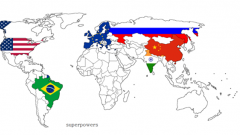Unlike neoliberalism from classical liberalism
Neoliberalism is an economic theory which proclaims freedom of personal initiative of economic entities and guarantees the satisfaction of all requirements with minimum cost. The basic conditions of the market system, this theory acknowledged the existence of private property, freedom of enterprise and free competition. This current was represented by several schools, among which the London school of Hayek, the Chicago school of Friedman school and he Aukena.
Unlike classical liberalism, this course does not deny the economic regulation by the state, but its sphere of regulation should be only guaranteeing the free market and unlimited competition, which should ensure social justice and economic growth. Neo-liberalism is similar in its principles of globalization in the economic sphere.
The basic idea of neoliberalism is to support protectionism. The political justification of the governments associated with defending the interests of the dissemination of advanced technologies, at the same time not losing control over the business, which in the end leads to growth of corruption and interventionist legislation. Some of the principles of neo-liberalism as the basis for the functioning of the world Bank, the world trade organization and International monetary Fund.
The basic principles of neoliberalism
In 1938, at a conference in Paris the representatives of this movement announced the main principles of the theory. In accordance with these principles, the market was the most effective form of management, the freedom and independence of economic actors was fundamental to the effectiveness and growth of the economy, the competition had to find support from the state, and freedom of personal initiative in the economic framework, should be guaranteed by law.
However, some famous writers such as Mario Vargas Llosa, tend to believe that the independent tide "neoliberalism" no, it's just an invented term, existing only for the depreciation of the theory of liberalism. Critics believe the policy is detrimental to social justice issues, especially that the policies of neo-liberalism has failed in Argentina, Eastern Europe, Asia and North Africa.





